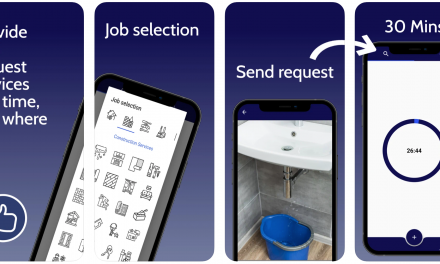Stamford, Connecticut – Imagine flipping on your TV or firing up your Wi-Fi, knowing two of the biggest names in cable—Charter and Cox—are now one team, working to make your bill a little lighter and your service a little smoother. That’s the promise behind Friday’s jaw-dropping $34.5 billion merger announcement, as Charter Communications, the folks behind Spectrum, and Cox Communications, a family-run giant, agreed to combine forces. This isn’t just a business deal—it’s a bet on keeping cable alive in a world obsessed with Netflix and 5G, and it’s got millions of us wondering what’s next for our internet and TV.
The merger, one of the biggest in recent memory, will create a cable colossus serving nearly 38 million customers from California to Maine. Charter’s bringing its 31.4 million subscribers, Cox is adding 6.5 million, and together, they’ll leapfrog Comcast to become the top dog in U.S. cable. “This is about you, the customer,” said Charter CEO Chris Winfrey, who’ll steer the new company. “We’re teaming up to build something stronger, with faster internet, better TV options, and prices that don’t make you wince.” Cox’s Alex Taylor, whose family has run the company since the ‘60s, will be chairman of the board. “My heart’s in this,” he said. “We’re joining Charter to keep our promise to communities and families.”
Why now? Cable’s in a tough spot. Streaming services like Disney+ and Amazon Prime are stealing TV watchers—Comcast lost over 2 million video subscribers last year alone. Meanwhile, AT&T and T-Mobile are tempting folks with 5G home internet that’s cheap and wireless. Charter and Cox have been fighting back, with Cox jumping into mobile in 2023 and Charter pushing its Spectrum Mobile hard. But their old-school cable and internet businesses are shrinking, and merging is their way of pooling resources to fight the giants. They’re promising $500 million in savings a year, which could mean lower costs for us, though some workers might face layoffs as offices combine.
For people like you and me, this could shake things up. If you’re a Cox customer, you’ll soon see Charter’s Spectrum plans, which come with perks like no yearly contracts and credits if your service goes out for more than two hours. In places like Southern California, Cox folks might finally get to watch the Dodgers on SportsNet LA, a channel Charter’s been gatekeeping for years. But not everyone’s cheering. Groups like the National Consumers League are worried—will programs like Cox’s $10-a-month Connect2Compete for low-income families stick around? “We’re watching closely,” said John Breyault, a consumer advocate. “Big mergers can mean big bills.”
Wall Street’s all in—Charter’s stock shot up 6% Friday, as investors bet on a leaner, meaner cable machine. On social media, some folks are hyped, with one user posting, “Charter + Cox = unstoppable. Streaming who?” Others aren’t so sure, grumbling about “another monopoly jacking up prices.” The deal’s got to clear hurdles with the Department of Justice and the FCC, and while experts think it’ll pass in today’s pro-business climate, regulators will be digging deep to make sure it doesn’t hurt customers.
The new company will be huge, covering 70 million homes and businesses. Cox’s family will own 23% of it, the biggest chunk, and they’re keeping the Cox name for the business, though you’ll still see Spectrum on your bill. The board’s a mix of Cox and Charter folks, with Alex Taylor leading the charge. They’re already planning to bring Spectrum’s app and pricing to Cox customers, promising zippier internet and TV that feels more like streaming.
This merger’s a big swing in a world where cable’s fighting to stay relevant. With ESPN and others launching their own streaming apps, the pressure’s on. Will this mean cheaper internet and better service, or just another corporate giant? For now, we’re all waiting to see if Charter and Cox can deliver on their promise to put customers first. As the deal heads to regulators, one thing’s clear: the cable game just got a whole lot bigger, and we’re all along for the ride.


















